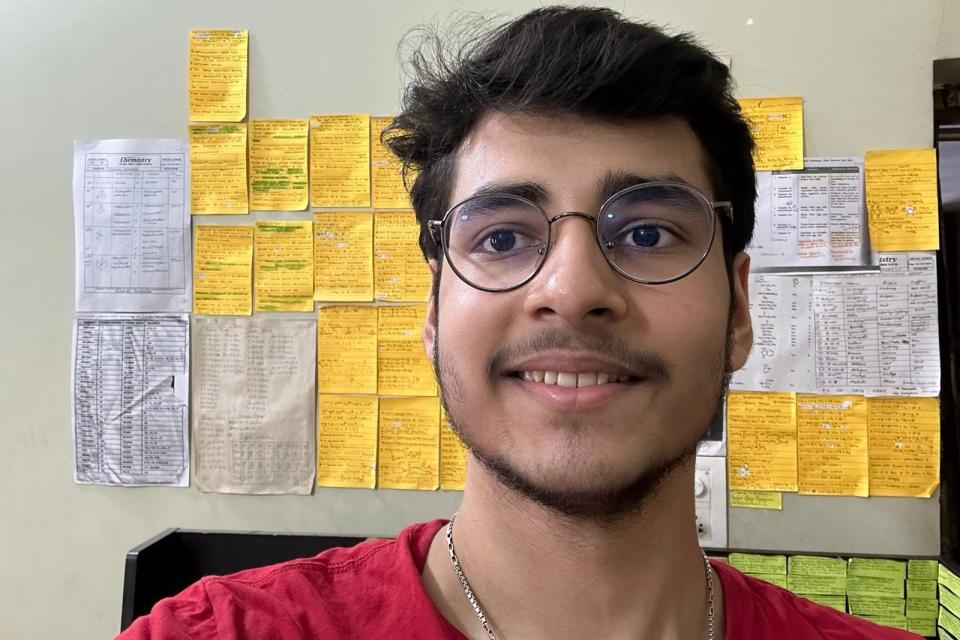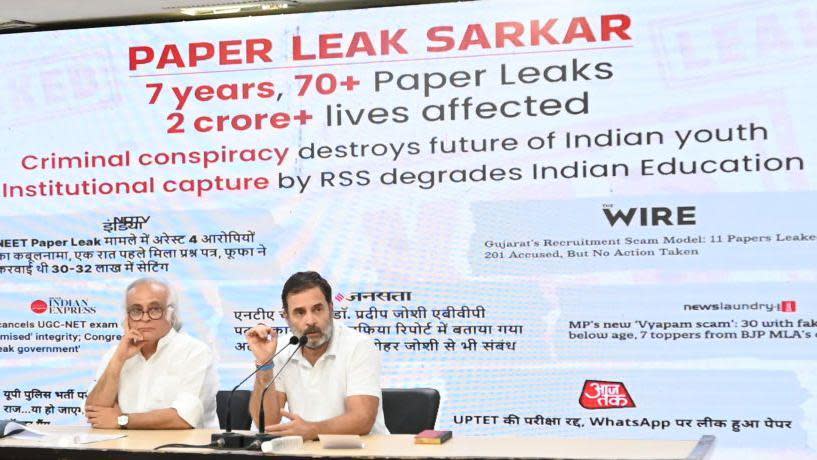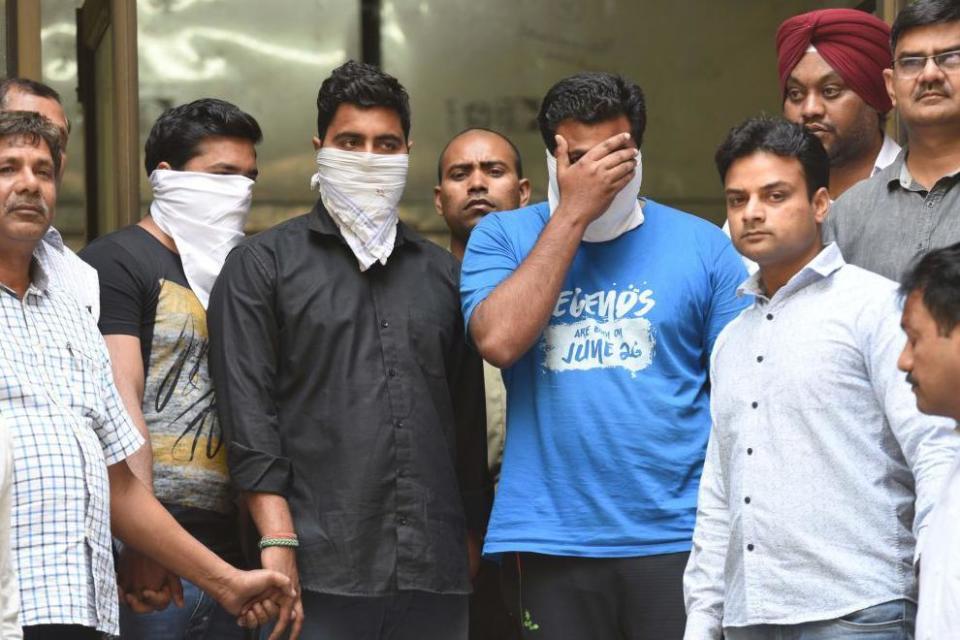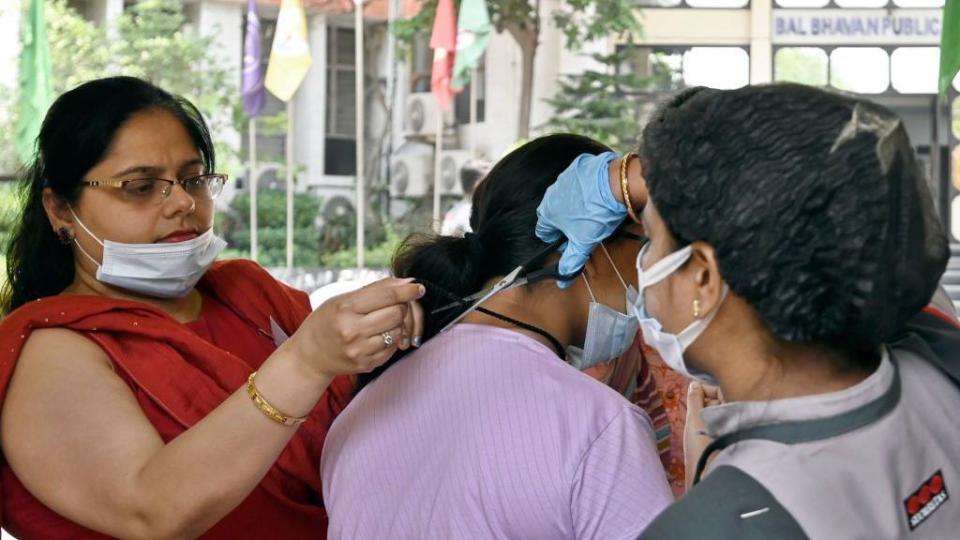Last week, on a sweltering day in Delhi, Kavya Mukhija traveled for hours to take a crucial government-organized exam for entry-level teaching in Indian universities.
The 25-year-old freelance researcher and disability activist uses a wheelchair because she has a rare congenital condition of stiff joints and found the exam center difficult to access. The road outside had been dug up, the steep slopes were unusable for wheelchairs – and the center itself had no wheelchair facilities.
If all this wasn’t enough, an even bigger shock awaited her.
A day after taking the four-hour test, as her custodial mother waited outside in the sweltering heat, authorities canceled the UGC-NET – as the exam is called – taken by more than 900,000 candidates in more than 300 cities.
The Ministry of Education initially released a cryptic statement saying the “integrity of the exam may have been compromised.” A day later, Minister Dharmendra Pradhan admitted that the question paper was leaked on the social media platform Telegram and on the ‘dark net’.
“I feel very angry. It feels like a double whammy to me. I don’t think I have the energy to take this exam again,” Kavya told me.

Nearly 1,000 kilometers away in the city of Patna, Archit Kumar faces a similar challenge.
In May, the 19-year-old aspiring doctor took a 200-minute national government-organised bachelor’s exam, with 2.4 million candidates competing for more than 110,000 medical college places.
Soon after the exam, a scandal broke out: Four people were arrested in the state of Bihar for allegedly leaking the question papers of what is called the National Eligibility Cum Entrance Test (Undergraduate) or NEET-UG exam.
There were widespread allegations of cheating, with many candidates scoring suspiciously high marks. Aspirants openly reported receiving cold calls just hours before the exam from touts demanding up to 3 million rupees ($35,918; £28,384) for questionnaires. Some even recorded the calls as evidence.
Many students and parents are demanding a re-examination, and numerous petitions have been filed in court for this purpose – and the Supreme Court is looking into it. Mr Pradhan ordered an investigation and admitted that ‘some mistakes had been made which were limited to specific regions’. He said the fate of millions of aspirants would not be held hostage by “a few isolated incidents”.


None of this comforts Archit.
For the past two years, he had given up his social life – not even meeting friends – and studied up to twelve hours a day for one of the most competitive exams in the world. With a score of 620 out of the last 720 marks, he achieved an all-India rank of 53,000.
“This came as a shock. There is a lot of anxiety. I have a friend who took the exam for the fifth time in a row this year. Imagine his condition. Imagine if we had to take a retake exam. I have forgotten so many things,” says Archit.
The Indian examination system is in chaos. It is fair to say that cheating and paper leaks have been plaguing exams for a long time. But now the major exams administered by the state-run National Testing Agency (NTA), including the Kavya and Archit exams, appear to be in jeopardy. Over the past month, alleged paper leaks and manipulated marks in these exams have jeopardized the future of 3.5 million candidates. Last week, three other government-conducted public exams were canceled or postponed, affecting another 1.3 million candidates.
“Things have gotten worse. There is a mafia-like nexus of teachers, touts and people running exam centers, creating this situation,” said Maheshwer Peri, an educationist who tracks paper leaks.


Mr Peri says touts usually contact aspirants, demand payment for the questionnaires and sometimes even accept post-dated cheques. In written exams, they leak papers to the candidates in advance and give them solved answers for them to memorize. During online exams, touts collect candidates’ digital login credentials to remotely access their computers and answer questions on their behalf.
It’s even worse for state exams. Questions for various local government recruitment exams are often leaked amid intense competition for jobs in an economy where most positions are largely informal, precarious and low-paid.
Recruitment exams for police officers, forest rangers, engineers, veterinarians and income tax inspectors have been affected by leaks in the past. Papers have been leaked on WhatsApp and stolen from storage areas. Suspects have hacked into servers of private companies that handle exams. In 2022, Delhi Police busted a major online fraud ring that allowed candidates to cheat in top exams. They had hired Russian hackers to develop undetectable software that would allow them to remotely hack into computers in exam centers.
Earlier this year, the Indian Express newspaper investigated an astonishing 41 documented cases of paper leaks in recruitment exams in the last five years in 15 states, led by governments of different parties.


It turned out that the leaks had affected the schedules of about 14 million applicants vying for just over 100,000 positions. Things have been so bad that paper leaks have become a hot topic in states like Gujarat, Uttar Pradesh, Madhya Pradesh, Rajasthan and Telangana during the recent elections. Most are now ruled by Prime Minister Narendra Modi’s Bharatiya Janata Party.
In 2015, the most daring exam cheating scandal rocked Vyapam, a government office in Madhya Pradesh that oversees more than 50 exams for government jobs and local medical colleges.
Question papers were leaked, answer sheets were forged, impersonators – bright young students themselves – were hired to represent candidates and seats were sold to the highest bidder. Complicit teachers filled in incomplete sheets, causing grades to increase.
“We have created an education system that encourages such fraud,” Mr Peri said.
First, there is a yawning gap between student demand and seat supply, coupled with affordability concerns.


The fact that 2.4 million students competed for just 110,000 medical college seats this year underlines the enormous pressure and fierce competition. Of these, around 55,000 to 60,000 seats are in government-run colleges, while the rest are in private institutions. Half of these seats are reserved for disadvantaged students.
Students prefer government schools because of their affordability – a five-year MBBS course at a government university costs between Rs 500,000 and Rs 1 million, while private colleges can charge up to ten times more.
Many believe that India’s jobs crisis is largely to blame for this. “This is largely a skills crisis,” notes economist Karthik Muralidharan in his new book Accelerating India’s Development. “Millions of skilled young people are unemployed, but employers are struggling to find enough skilled workers.”
The education system’s emphasis on passing exams through blocks leaves many students without an understanding of subjects and practical skills valued by employers. India’s youth would be better served by improving skills and vocational education, says Muralidharan. He also emphasizes the need for reforms in the examination system to capture not only students’ grades and rankings, but also their skills and knowledge.


Currently, the government has promised a rigorous probe into the latest scandals and Minister Pradhan has taken “moral responsibility” for the loss of confidence among students.
Much more needs to be done. It is unclear whether a new anti-fraud law for government jobs and college entrance exams has had a deterrent effect. Mr Peri questions why authorities do not carry out basic “hygiene” checks during the collection of exam results. He suggests that authorities should investigate possible irregularities if, for example, six top scorers come from one exam center or if students who perform poorly in high school pass an undergraduate exam.
“That would be a fundamental, good start,” he says.
Yet the students do not seem hopeful.
“We are losing confidence in our exam system,” says Archit. “We just don’t understand what’s going on.”







